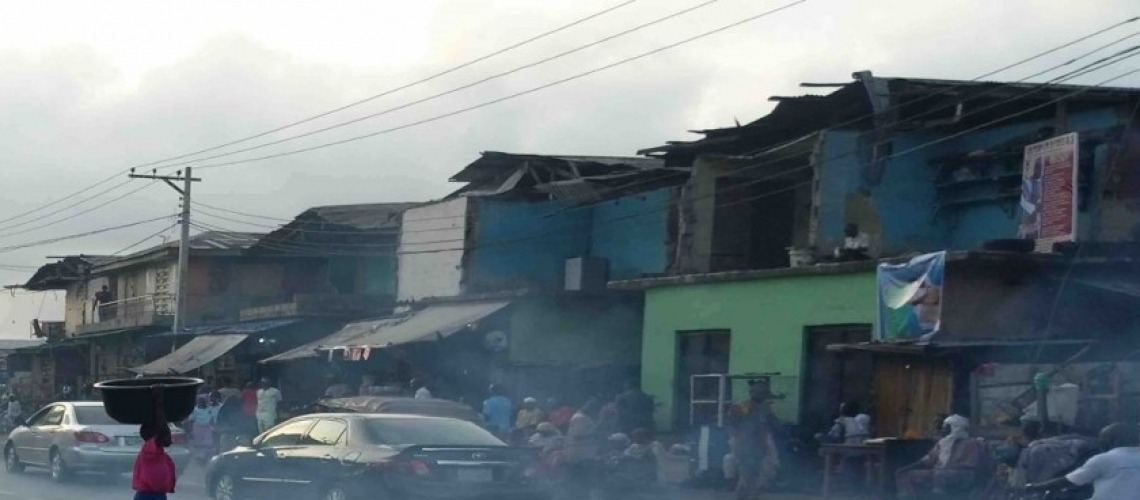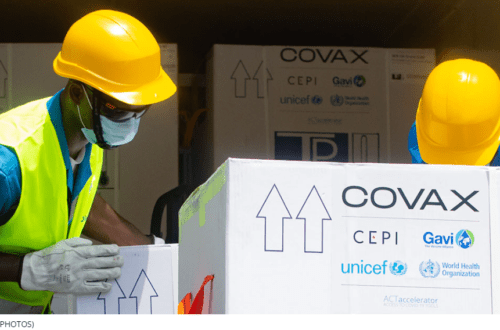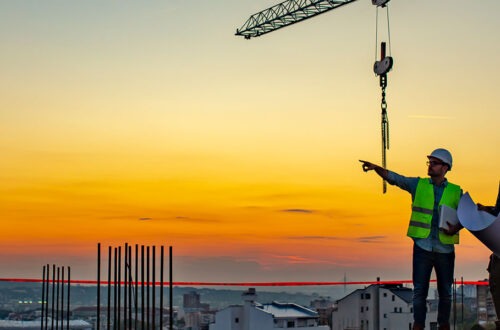
Air pollution: A silent killer in Lagos
By KARIN KEMPER & SHUBHAM CHAUDHURI/World Bank
As Nigeria’s economic hub, Lagos is one of the world’s fastest-growing megacities, but this rapid growth has had a downside with high rates of illness and premature death caused by unhealthy air.
A recent World Bank study, the Cost of Air Pollution in Lagos, estimates that illness and premature deaths due to ambient air pollution caused losses of $2.1 billion in 2018, representing about 2.1% of Lagos State’s GDP. In the same year, it caused an estimated 11,200 premature deaths, the highest in West Africa. Children under five were the most affected, accounting for 60 percent of total deaths while adults suffered from heart disease, lung cancer, and chronic obstructive pulmonary disease.
If as experts predict, Lagos becomes the world’s largest city by 2100, major sources of pollution will likely increase as industry grows and transportation needs soar.
The Challenges of Pollution
Our study estimates the impact of ambient air pollution on health, analyzes main pollution sources, and recommends options to improve Lagos’ air quality. Indoor air pollution is another challenge that will be explored in a later study.
Ambient air pollution is caused by pollutants such as nitrogen oxides, sulfur oxides, ozone, air toxics, and fine particulate matter with an aerodynamic diameter of less than 2.5 micrometres (PM 2.5). These are dangerous because they can pass lung barriers and enter the bloodstream, contributing to mortality and morbidity. While the WHO guideline for the annual mean PM 2.5 concentration level is 10 μg/m3 , Lagos has recorded levels of 68 μg/m3, in the same range as other polluted megacities such as Beijing, Cairo and Mumbai.
According to our study, the top three sources of PM 2.5 in Lagos are road transport, industrial emissions and generators – all of which can be addressed with the right actions.
Road transport is the primary source of PM 2.5. With limited transportation options, the number of vehicles in Lagos has almost quadrupled in the last decade. The average Lagos commute takes four hours a day, the highest in the world. Every day, 227 vehicles clog each km of road. Most vehicles are over 15 years old, using old emission technologies and fuel with high sulfur levels: 200 times higher than U.S. standards for diesel.
Emissions from industries are the second source of PM 2.5. Our earlier research showed that industrial and commercial zones like Apapa, Idumota, Ikeja and Odogunyan, where cement, chemicals, furniture, refinery, steel industries, and markets are concentrated, have high levels of pollution. In the Odogunyan site known for its iron smelting factories, a PM 2.5 concentration of 1 770 μg/m3 was recorded in a period of 24 h – 70 times higher than the WHO guideline. We still need more data to identify major industry and power emission sources.
Nigeria’s vibrant economy, large population and unreliable power sector have led to a heavy dependence on backup generators. In Lagos alone, about half of the city’s total energy demand is met by generators, the third source of PM 2.5. Large diesel generators are used in institutional, commercial, and housing sites while small generators have proliferated across households and small businesses. The poor combustion of the gasoline and lubricating oil used for generators pollutes the air and causes huge health damage as they are used in closer proximity to people.
Two other factors contribute to pollution: inadequate waste infrastructure and pollution from the two ports. Without a proper waste management system, people resort to open burning of waste and illegal dumping, causing the emissions of toxic pollutants. Nigerian ports statistics state that in 2017, 33 million metric tons of cargo passed through the two major ports of Apapa and Tin Can. Every day, about 5,000 highly polluting diesel trucks seek access to the ports or park around for months, picking up or waiting for their loads, causing heavy congestion and pollution.
The Solutions we Bring
The World Bank is working with the authorities in Lagos to support the city’s efforts to improve air quality. Our Pollution Management and Environment Health Program (PMEH) offers opportunities for change and our collaboration with IFC helps us leverage private sector investments.
It is clear that no single action can solve the challenges faced by a high energy consumption megacity like Lagos. But, we propose various options, keeping in mind that they can be effective only when implemented simultaneously. Low emission vehicles could reduce air pollution if they adopt cleaner fuels. Old generators could be decommissioned but alternative power sources must be put in place first.
Lagos is making some progress in initiating laws that still need to be implemented. In 2017, standards for sulfur content in fuel were lowered to reduce emissions: from 3,000 parts per million (ppm) to 50 ppm for diesel; and from 1,000 ppm to 150 ppm for gasoline.
Through the Lagos PMEH/Air Quality Management Program, we are working with the Lagos government to prepare an air pollution control plan based on deeper research on key emission sources and implementation cost. We are also advising them on the adoption of policies that create incentives to purchase cleaner passenger vehicles, improve vehicle inspection, retrofit the most polluting vehicles, shift to public transport, and adopt cleaner fuel.
Emissions from industries and power could be lowered with better technologies such as solar power. The massive amount of waste illegally buried, burned, or dumped requires investment in technologies, teams that monitor and penalize these activities, and appropriate waste management infrastructure. We are working with the International Finance Corporation (IFC) to create a recycling market for plastic waste.
In the future, priorities could include long-term monitoring of air pollution, centralized health data by age and cause of mortality or morbidity, an inventory of polluters and better analysis of the impacts of indoor pollution on health.
Lastly, investment shortfalls can be curtailed through innovative financing. That is why we are exploring with IFC, the issuance of a Breathe Better Bond (BBB). This innovative financing instrument will offer an opportunity to tackle air pollution and greenhouse gas emissions by investing in climate-friendly infrastructure projects while improving the quality of life.
In the next decade, Abidjan, Accra, Nairobi, Johannesburg and many other megacities will face similar issues of air pollution. We hope to support Lagos overcome these challenges and replicate the lessons learned across the continent. A regional approach will be critical to the success.
CREDIT: The Post Air pollution: A silent killer in Lagos first appeared on the WorldBank Blog on SEPTEMBER 3, 2020.




